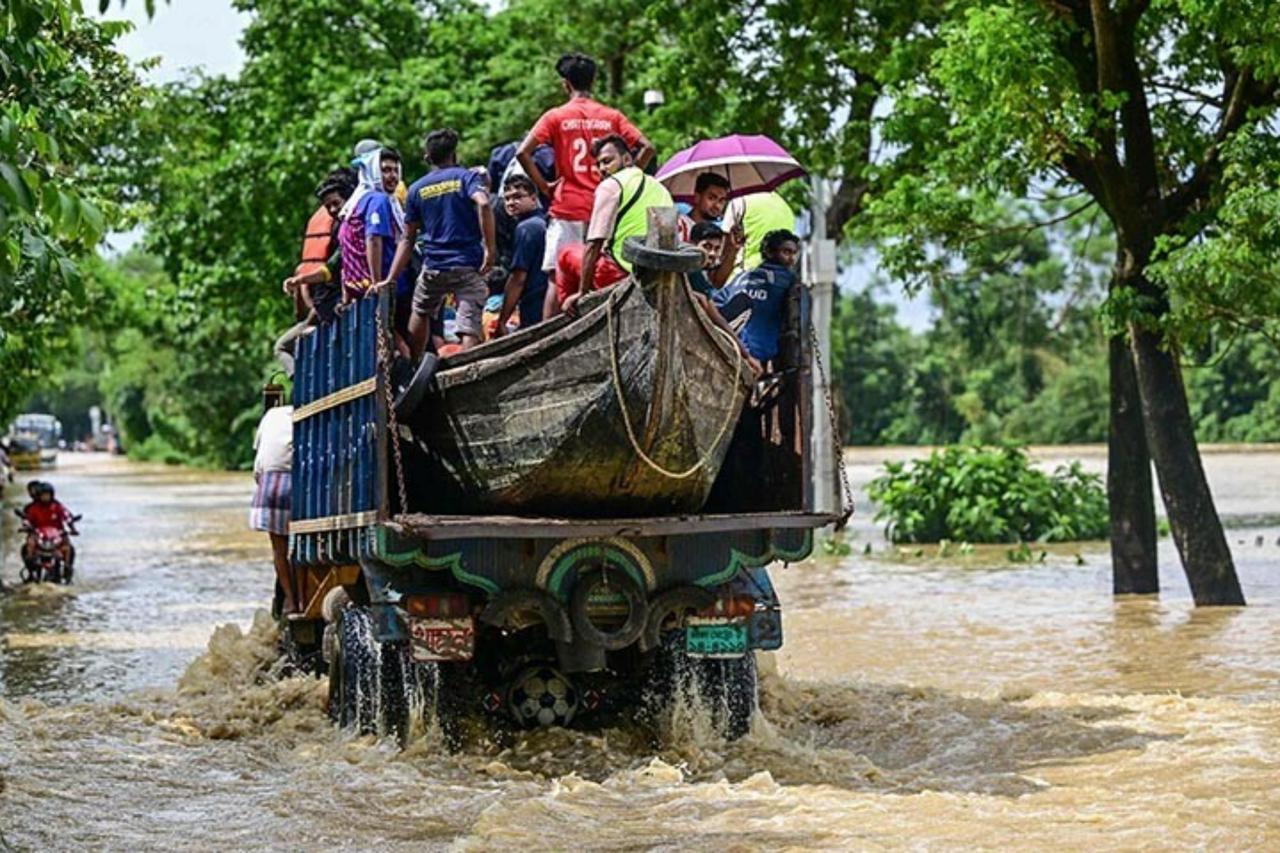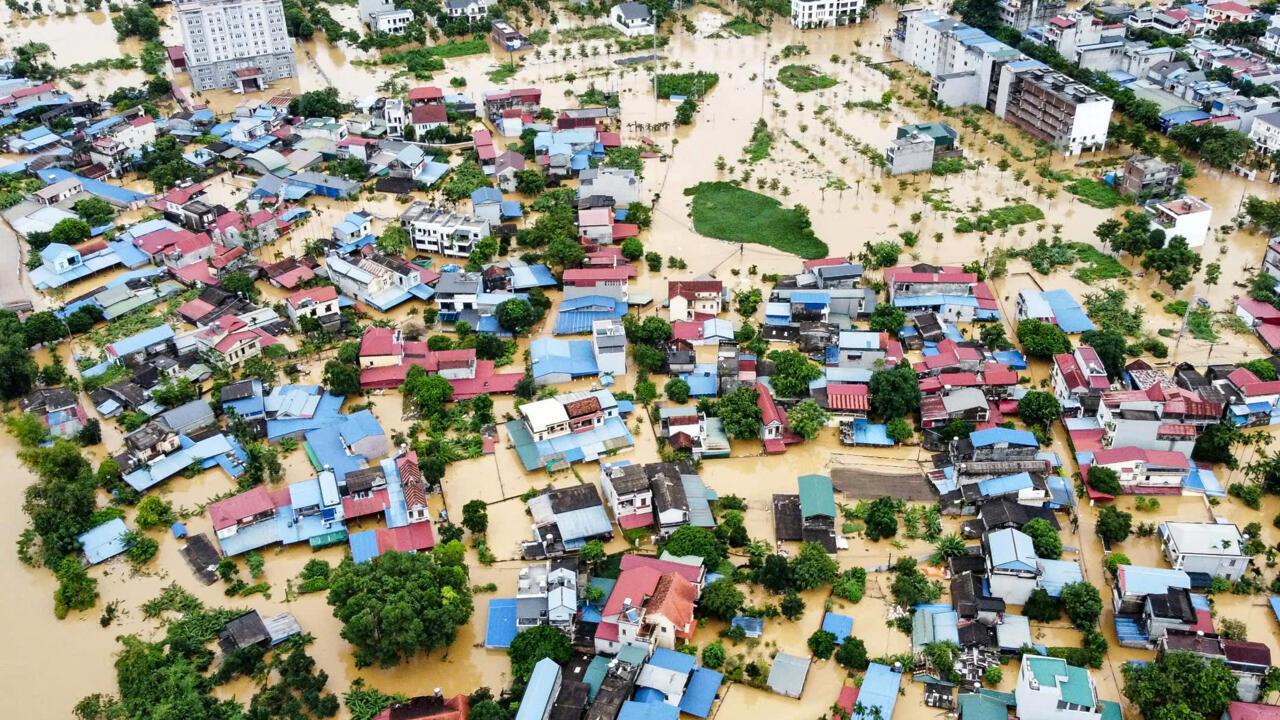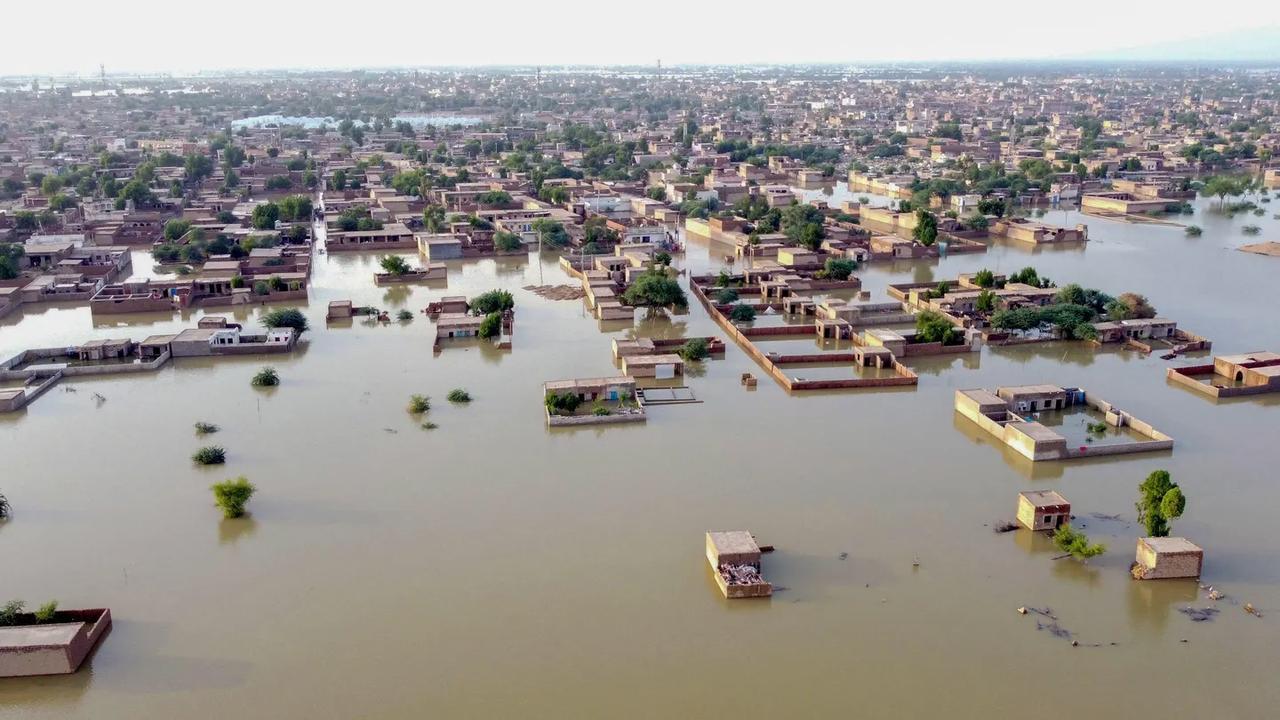
The working class in the steerage was the first to be affected by the calamity when the Titanic was hit by a massive iceberg back in 1912. As it wrestled desperately with time and resources to reach the lifeboats, first-class passengers, tucked away on higher decks far from the impact, faced the repercussions way later—but they did face them in the end.
Lately, it seems some countries are bearing the brunt of climate change more than others. Especially after the recent torrential rains across South Asia that have killed thousands and displaced millions. The catastrophic rains also raise a pressing question for the world: Are these torrential rains a warning of the wider consequences of climate change impacting the world?
The example of the Titanic ship can explain the scenario better.
The hidden tip of the iceberg that the Titanic crew never saw is the daunting climate change, and the world is that sinking ship, racing against time. Right now, the hardest hit are the most vulnerable countries—mostly underdeveloped and developing countries—but sooner or later, the ripple effects will reach everyone. Like the Titanic, it’s only a matter of time.
South Asia, home to one-fourth of the world’s population, has a significant share of people barely surviving below the poverty line.
The region, unfortunately, takes the fiercest blow of climate change. Among the most vulnerable is Pakistan, which lost billions to climate change this year despite emitting less than 1% of total greenhouse gas emissions.

Torrential rains, rising sea levels, droughts, and changing weather patterns are a constant threat to Pakistan’s agriculture-based economy. The unprecedented flash floods not only washed away homes and ravaged livestock and crops but also killed nearly 1000 people since late June this year. The country that prayed for adequate rains, increasing fertility of the lands, now dreads the monsoon season due to the colossal damage the downpours bring.
But this is not Pakistan’s first major climate disaster. In 2022, glacial melt turned rivers into raging torrents, submerging a third of the country. Losses to property and land were around $14.8 billion, with gross domestic product (GDP) taking an additional $15.2 billion toll.
“I lost almost everything I owned in relentless rains and floods back in 2022. The water swept away my house, which was already under mortgage, and now I am in severe debt. We fear the same fate in 2025,” said 59-year-old farmer Abdul Shakoor, who has a family of 12 to feed and is a resident of Dadu district, Pakistan.
Similarly, 13-year-old Kaneez Bano narrated her ordeal from Buner district, Khyber Pakhtunkhwa province, in Pakistan’s north. “I have been missing school for almost two months now. For me, climate change is indeed a matter of life and death, as it’s keeping me away from education—one thing I am most passionate about,” shared Bano as she stood in a long queue for collecting food essentials during the flood relief operation.

It’s no surprise that Bangladesh, India, Bhutan, Sri Lanka, Afghanistan, the Maldives, and Nepal are in the same boat as Pakistan.
“It isn't new for us to have such merciless monsoons ... families spend days only to clean and repair the destruction from rains and continue doing so even months after the rain is over. Sylhet, Sunamganj, Moulvibazar, Habiganj, and Bhola, among others, are the most affected. Some even saw a power outage that stretched for hours,” said newspaper seller Rifaat Hossaein, who runs a small stall in the second-largest city of Bangladesh, Chattogram.
“Climate change isn't a distant threat; it has hit our homes and is closer to us than ever,” Hossaein warned. Around 3.5 million people in the South Asian nation were at risk of yearly river flooding, which has only gotten worse recently as a result of climate change, as per a 2015 World Bank Institute analysis.
With unpredictable weather patterns, many climate experts believe that the severe rainstorms that ravaged South Asia in 2025 are a stark reminder to the world of how planet-warming gases in the air are causing historical climate catastrophes.
Rising temperatures and shifting monsoon seasons have upended centuries-old weather patterns. Now, billions of people are vulnerable and uncertain about whether or when to expect rainfall.
This isn’t just confined to displacements and people in South Asia living on the brink of uncertainty. In the big picture, abrupt changes in climate patterns can even cause supply chains to collapse. Changing weather patterns are already destroying crops, with floodwaters submerging large farmlands. This would eventually cripple the food system and lead to food scarcity.
Hunger, poverty, and unstable food prices are also repercussions of climate change. The implications may extend well beyond South Asia and will affect markets and households around the world.
The region is heavily affected by climate change, even though its contribution to global emissions is relatively insignificant. The waters may not yet lap at the shores of the wealthiest countries, but climate change is a rising tide that spares no one.
If the ship sinks here, it sinks everywhere and will eventually take everyone down!